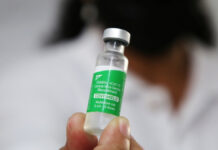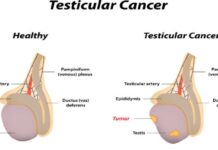 BARCELONA, Spain: Health-related applications for smartphones and tablets are a booming business, but in Africa and Asia “mobile health” could actually be a lifesaver for millions, industry leaders and aid organizations say.
BARCELONA, Spain: Health-related applications for smartphones and tablets are a booming business, but in Africa and Asia “mobile health” could actually be a lifesaver for millions, industry leaders and aid organizations say.
Mobile phones could save up to a million lives over the next five years in sub-Saharan Africa, according to a report by mobile industry association GSMA and global consultants PwC released at the February 25-28 Mobile World Congress in Barcelona.
Africa’s population of one billion is among the world’s least “connected” yet more than a third already own a mobile phone, often in the most isolated areas, added a study by Wireless Intelligence.
The same is true in other parts of the world.
“In India, a lot of people have no access to Internet, they sometimes can’t read, but they have a mobile phone,” said Sara Chamberlain, head of information and communications technology for India for BBC Media Action.
“It’s often the only device they can access,” said Chamberlain, who works on mobile health campaigns.
An SMS text information campaign can significantly improve the impact and efficiency of organizations’ disease prevention programs, she said.
“In maternal, newborn and child health, we are witnessing the game-changing effects that mobile technology has to offer through services such as pregnancy and birth registries, immunization and nutrition tracking,” said Patricia Mechael, executive director of Health Alliance.
These services could prove useful in sub-Saharan Africa for instance, where more than 1.2 million newborns die each year and one in nine children do not reach the age of five, according to the report by GSMA and PwC.
But the financing of mobile health in the developing world is still uncertain.
“The question of financial sustainability and ultimately ‘who pays?’ poses persistent challenges,” said a report by mHealth Alliance and Vital Wave Consulting, also published at the World Mobile Congress in Spain.
In richer countries, meanwhile, money is pouring into “mobile health”.
One of the main aims is to let people with chronic illnesses better manage their conditions day-to-day and reduce time spent in hospital.
According to PwC, by 2017 mobile health services could save USD 400 billion a year out of a total annual health expenditure of USD 6 trillion in the leading industrialized nations of the OECD. -PTI
Mobile phone health apps touted as lifesavers
0 - 0






